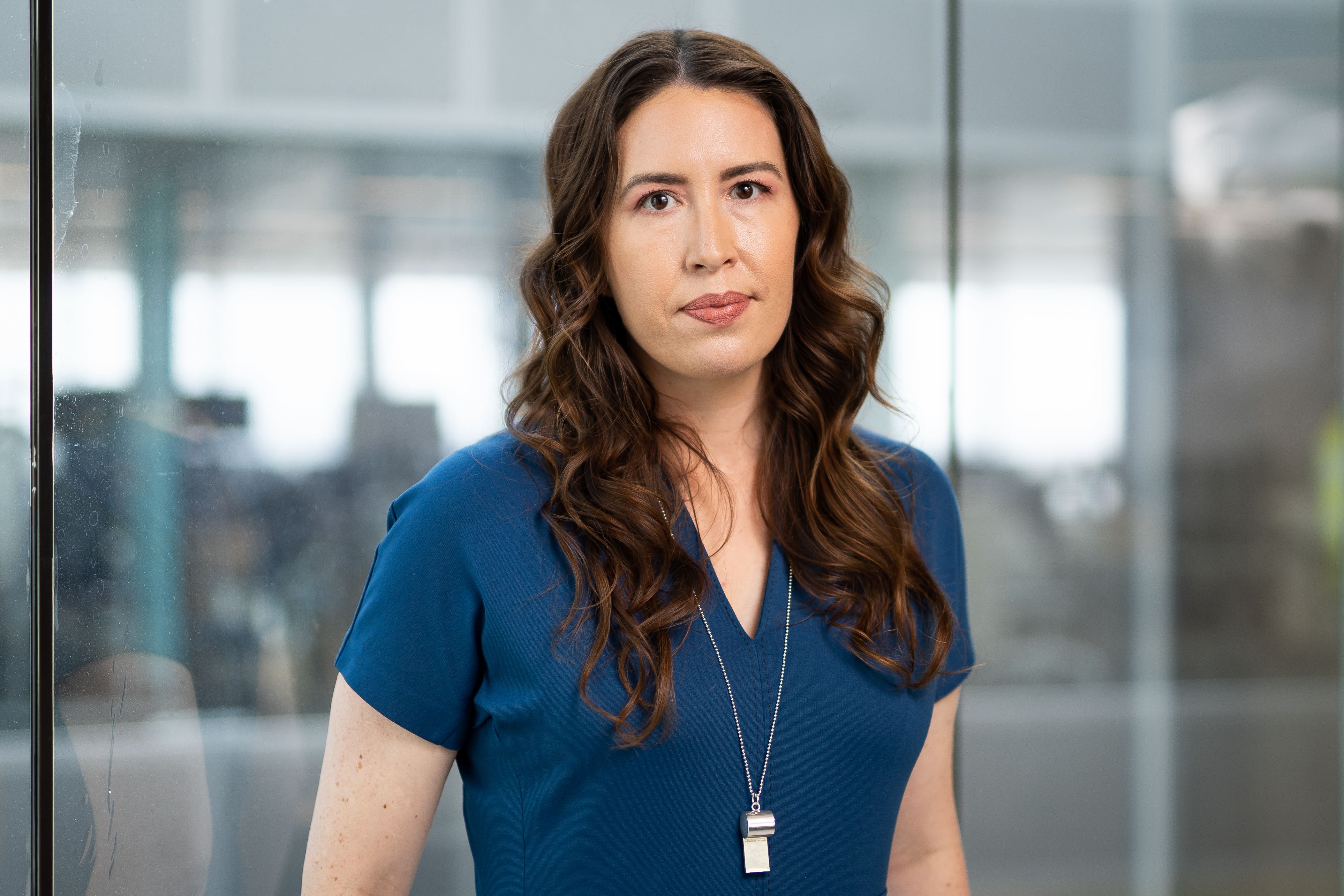Rape conviction rates are dismal – it’s no wonder women have lost hope
In a damning assessment, the government’s ‘rape tsar’ says she has so little faith in the police’s commitment to investigating rape, she wouldn’t even report one herself. Where does that leave the rest of us, asks Charlotte Proudman


For many rape survivors, Emily Hunt was a symbol of hope. As a survivor herself, the government’s so-called “rape tsar” spoke from a position of lived experience, and with a burning passion, about changing a broken criminal justice system.
Hunt, 43, had served as the Ministry of Justice’s independent adviser to its Rape Review for the past two years. During this time, she successfully implemented a 24-hour sexual abuse helpline and championed Operation Soteria Bluestone, a collaborative policing model designed to change for the better how police handle sexual abuse and rape.
Yesterday, she announced her resignation. Why?
In a statement, Hunt, who is originally from New York, said she had “decided to walk away from the role” as she felt there was a lack of will to change how the police approach rape, adding that: “I don’t think I could ever report a crime to the police in this country again.”
When our own rape tsar says she doesn’t feel safe in the UK, and that she no longer has faith in the British criminal justice system, is it perhaps time to set up an organisation independent of the police to investigate sexual violence?
In 2015, Hunt awoke naked in a hotel room with a stranger who she believed had drugged and raped her. After a five-year court battle, Christopher Killock was convicted of voyeurism for filming her while she was unconscious, but not of rape, because the CPS found there was not enough evidence to pursue a prosecution.
Hunt has since written a book, We Need To Talk: The Truth about Sexual Violence and My Fight for Justice. I was honoured to speak at her book launch, as she shared her insights into the radical reforms needed in the criminal justice system.
Hunt said that rape myths – that a victim can provoke an assailant by the way they dress, by being drunk or careless, or that by not physically struggling or fighting, it somehow wasn’t really rape – remain pervasive in our society at large, and are perpetuated at high levels of the civil service and the police. Our justice system is not immune to such myths.
Baroness Casey’s damning review into the Metropolitan Police found that rape and domestic violence survivors were made to feel like an “inconvenience”, and “gaslighted” by police officers. She felt deep-rooted misogyny, racism and homophobia are all bigoted attitudes that often go hand in hand.
One anonymous officer in Baroness Casey’s report said: ‘If you look at our performance around rape and serious sexual offences, the detection rate is so low, you may as well say it’s legal in London.’
While many serving officers are overworked and inexperienced, that does not excuse rude, sarcastic or even harmful attitudes towards victims. Some victims have reported that the investigation into a rape was more traumatic than the rape itself.
The high-profile cases of serving senior metropolitan police officers, Wayne Couzens, who was found to be a murderer, and David Carrick, who was a serial rapist, are just the tip of the iceberg. Right now, one in 34 Metropolitan Police officers have been suspended or on restricted duty for alleged misconduct, which can include accusations of sexual abuse. Many of those responsible for investigating perpetrators are perpetrators themselves.
Just ask yourself, would you feel “safe” reporting sexual assault to the police?
As a family law barrister, many women I represent tell me about their awful experiences reporting to the police. Others openly say to me: “What’s the point?” This is a system that is stacked against victims. I used to believe that the systemic and institutional failings were unintentional and caused by an array of chaos, but now I am not so sure.
One anonymous officer in Baroness Casey’s report said: “If you look at our performance around rape and serious sexual offences, the detection rate is so low, you may as well say it’s legal in London.”
Dame Vera Baird KC, our former victims’ commissioner, warned that rape was becoming decriminalised. Baird resigned from the post last September, in a scathing letter warning the justice system was in “chaos” – a year later and no one has filled her role, resulting in victims being neglected with no strong advocate for reform. We are living in a country where rape has been normalised, even legitimised and the systems that are supposed to protect us are complicit in silencing victims.
Rape Crisis has reported that 85,000 women experience rape, attempted rape or sexual assault every year, and one in four women will suffer rape or sexual assault as an adult. They state that the highest number of rape cases reported to the police was 70,330, as of March 2022. That same year, a minuscule two out of 100 rapes recorded by police resulted in a charge, let alone a conviction. These rates are dismal – and it is difficult to feel hopeful.
Hunt’s resignation should push the government to begin a thorough and rapid address of rape in our justice system and show that they do care about victims who often suffer further retraumatisation by a system that lets them down.
Survivors deserve better. They deserve a government that prioritises their safety and wellbeing, and cares about making the necessary changes to do so.







Join our commenting forum
Join thought-provoking conversations, follow other Independent readers and see their replies
11Comments